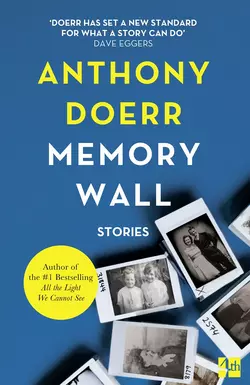Memory Wall

Anthony Doerr
Тип: электронная книга
Жанр: Фольклор
Язык: на английском языке
Стоимость: 774.44 ₽
Статус: В продаже
Издательство: HarperCollins
Дата публикации: 16.04.2024
Отзывы: Пока нет Добавить отзыв
О книге: Set on four continents, Anthony Doerr′s collection of stories is about memory: the source of meaning and coherence in our lives, the fragile thread that connects us to ourselves and to others.Set on four continents, Anthony Doerr′s collection of stories is about memory: the source of meaning and coherence in our lives, the fragile thread that connects us to ourselves and to others.In the luminous and beautiful title story, a young boy in South Africa comes to possess an old woman′s secret, a piece of the past with the power to redeem a life. In ′The River Nemunas′, a teenaged orphan moves from Kansas to Lithuania to live with her grandfather, and discovers a world in which myth becomes real. ′Village 113′ is about the building of the Three Gorges Dam and the seedkeeper who guards the history of a village soon to be submerged. And in ′Afterworld,′ the radiant, cathartic final story, a woman who escaped the Holocaust is haunted by visions of her childhood friends in Germany, yet finds solace in the tender ministrations of her grandson.The stories in Memory Wall show us how we figure the world, and show Anthony Doerr to be one of the masters of the form.